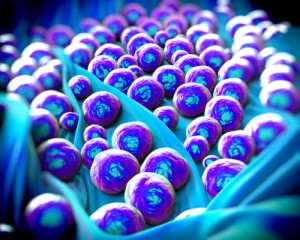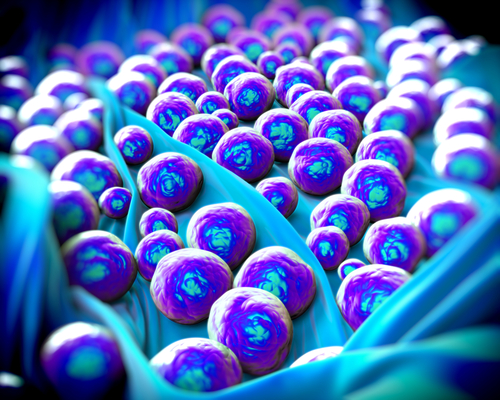 A team of researchers from The University of Texas MD Anderson Cancer Center, Houston, has discovered that the zinc finger E-box binding homeobox 1 (ZEB1) protein can help breast tumor cells repair DNA damage inflicted by radiation therapy, thereby allowing tumors to become unresponsive to this type of therapy. This new insight could help to substantially improve the effectiveness of radiotherapy in treating various forms of breast cancer in the future.
A team of researchers from The University of Texas MD Anderson Cancer Center, Houston, has discovered that the zinc finger E-box binding homeobox 1 (ZEB1) protein can help breast tumor cells repair DNA damage inflicted by radiation therapy, thereby allowing tumors to become unresponsive to this type of therapy. This new insight could help to substantially improve the effectiveness of radiotherapy in treating various forms of breast cancer in the future.
“Radiation therapy causes cell death by inducing DNA ‘ breaks,’” said Li Ma, Ph.D. an assistant professor of experimental radiation oncology at MD Anderson and senior author of the study. “The rationale for treating tumors with radiation without damaging normal tissues is that, compared with normal cells, tumor cells are actively dividing and often have defects in DNA damage repair machinery.”
The results, published in this month’s Nature Cell Biology, revealed that upon DNA damaged caused by radiation, ZEB1 activates the DNA damage response pathway, enabling cells to repair their DNA while creating tumor cells resistant to radiation.
Additionally, ZEB1 induces an epithelial-mesenchymal transition (EMT), a biological process naturally involved in wound healing, which cancer cells have evolved to master, allowing them to acquire cancer stem cells’ proprieties, such as chemo and radioresistance, leading to tumor progression.
The researchers observed that, mechanistically speaking, radioresistant breast cancer cell subpopulations exhibited hyperactivation of the kinase ATM, which in turn phosphorylated and stabilized ZEB1 in response to DNA damage. ZEB1 in turn directly interacted with USP7, an enzyme directly involved in cancer stabilization, enhancing its ability to stabilize CHK1, a protein that coordinates DNA damage and cell cycle checkpoint responses.
This chain of events promoted homologous recombination-dependent DNA repair and resistance to radiation.
Understanding the underlying pathways that generate radiation resistant cells can hopefully lead to new and improved approaches in radiotherapy treatments, an extremely important issue for patients suffering from breast cancer, since radiotherapy is a common line of treatment in this population.
“Radiation therapy plays a key role in breast cancer management. To overcome the obstacle of radioresistant tumor cells, it is important to identify the critical causes and to develop safe and effective new methods for treatment including the possible use of agents that target ZEB1 and which inhibit CHK1,” concluded Dr. Ma.
This study was funded by the National Institutes of Health and by a Cancer Prevention Research Institute of Texas scholar award.

